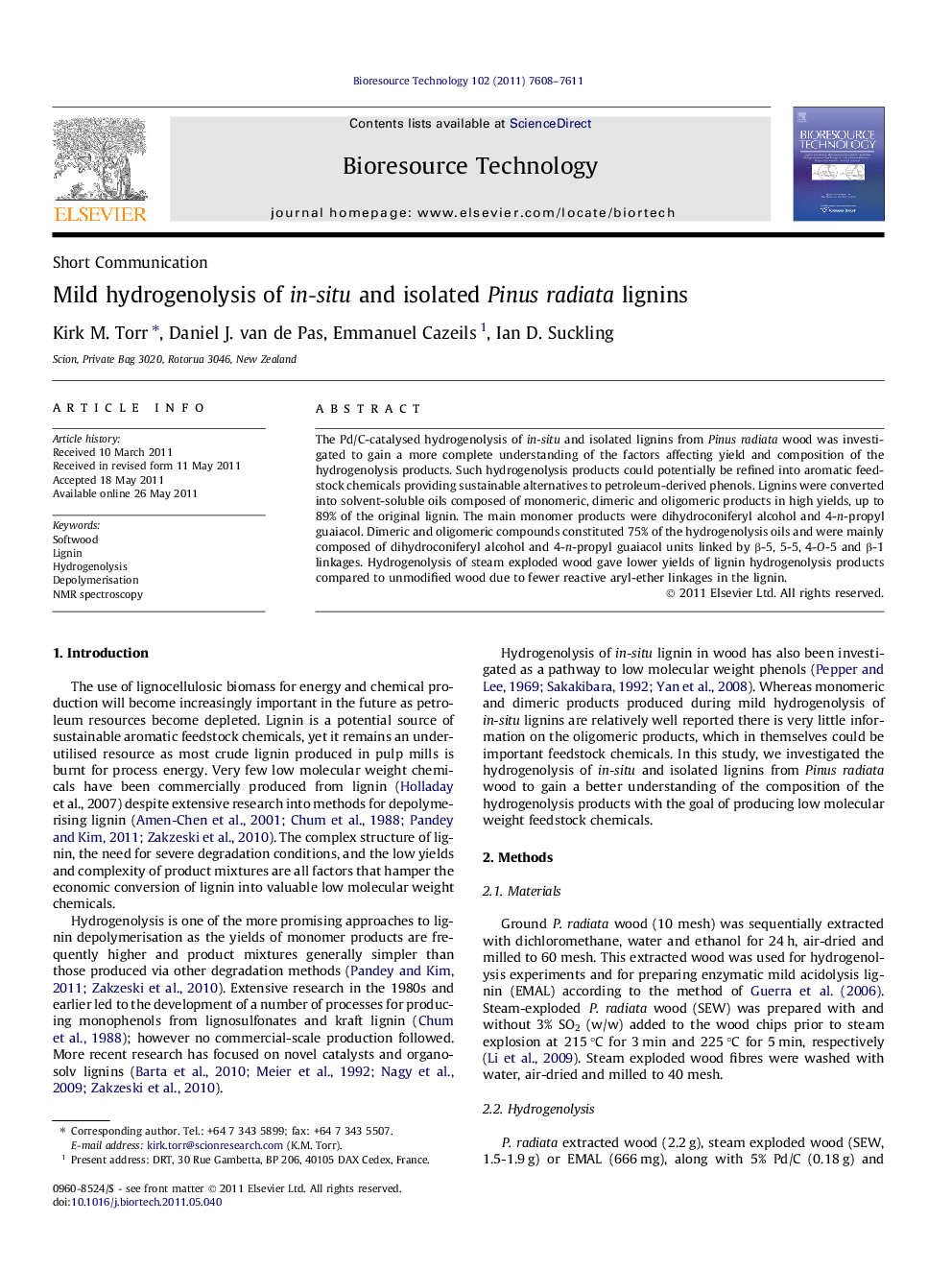| کد مقاله | کد نشریه | سال انتشار | مقاله انگلیسی | نسخه تمام متن |
|---|---|---|---|---|
| 681860 | 888965 | 2011 | 4 صفحه PDF | دانلود رایگان |

The Pd/C-catalysed hydrogenolysis of in-situ and isolated lignins from Pinus radiata wood was investigated to gain a more complete understanding of the factors affecting yield and composition of the hydrogenolysis products. Such hydrogenolysis products could potentially be refined into aromatic feedstock chemicals providing sustainable alternatives to petroleum-derived phenols. Lignins were converted into solvent-soluble oils composed of monomeric, dimeric and oligomeric products in high yields, up to 89% of the original lignin. The main monomer products were dihydroconiferyl alcohol and 4-n-propyl guaiacol. Dimeric and oligomeric compounds constituted 75% of the hydrogenolysis oils and were mainly composed of dihydroconiferyl alcohol and 4-n-propyl guaiacol units linked by β-5, 5-5, 4-O-5 and β-1 linkages. Hydrogenolysis of steam exploded wood gave lower yields of lignin hydrogenolysis products compared to unmodified wood due to fewer reactive aryl-ether linkages in the lignin.
► Mild hydrogenolysis of in-situ and isolated softwood lignins was studied.
► Palladium-catalysed hydrogenolysis gave low molecular weight phenols in high yield.
► Monomers, dimers and oligomers of dihydroconiferyl alcohol were the main products.
► Mild hydrogenolysis provides a pathway to feedstock chemicals from native lignins.
Journal: Bioresource Technology - Volume 102, Issue 16, August 2011, Pages 7608–7611